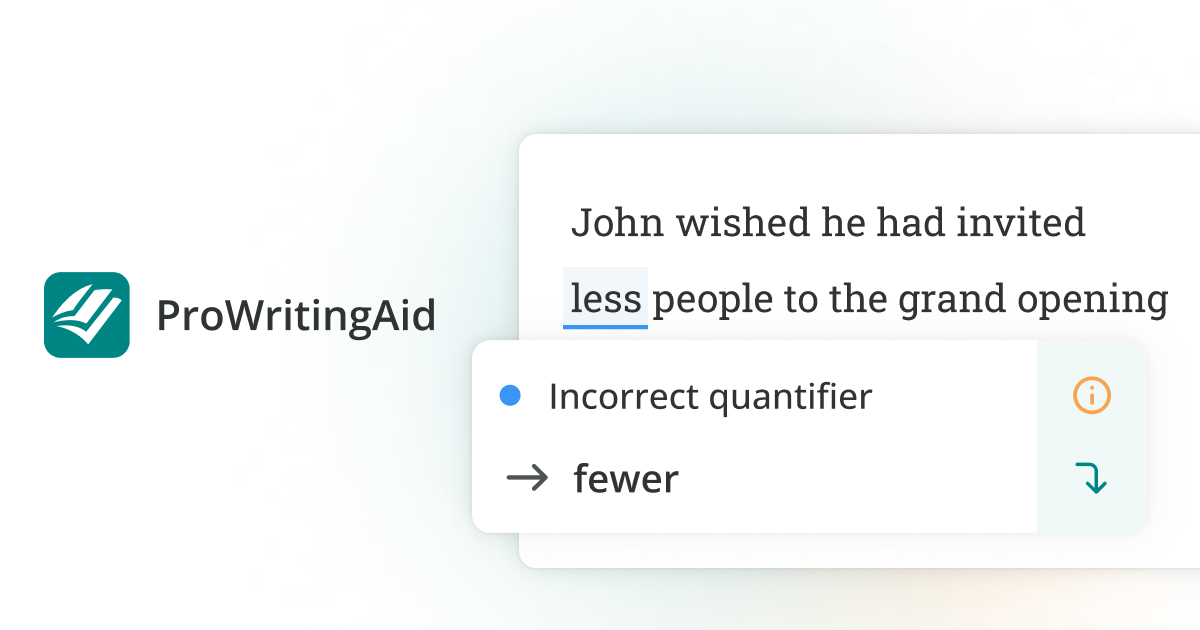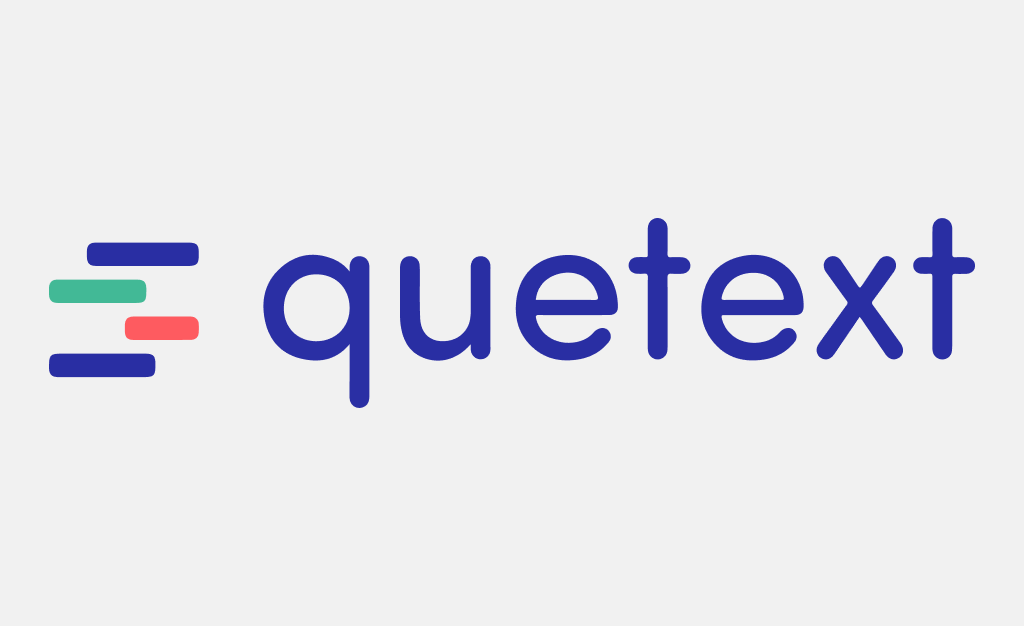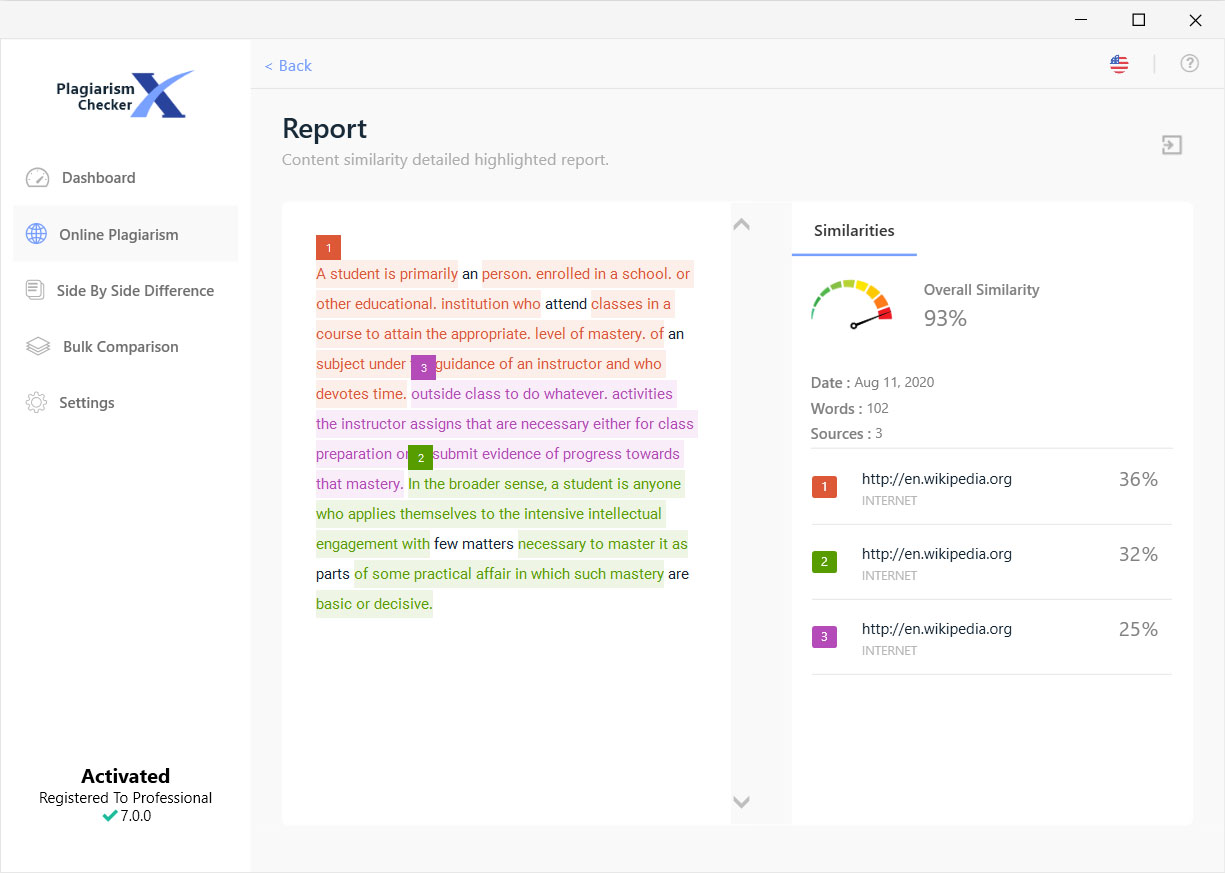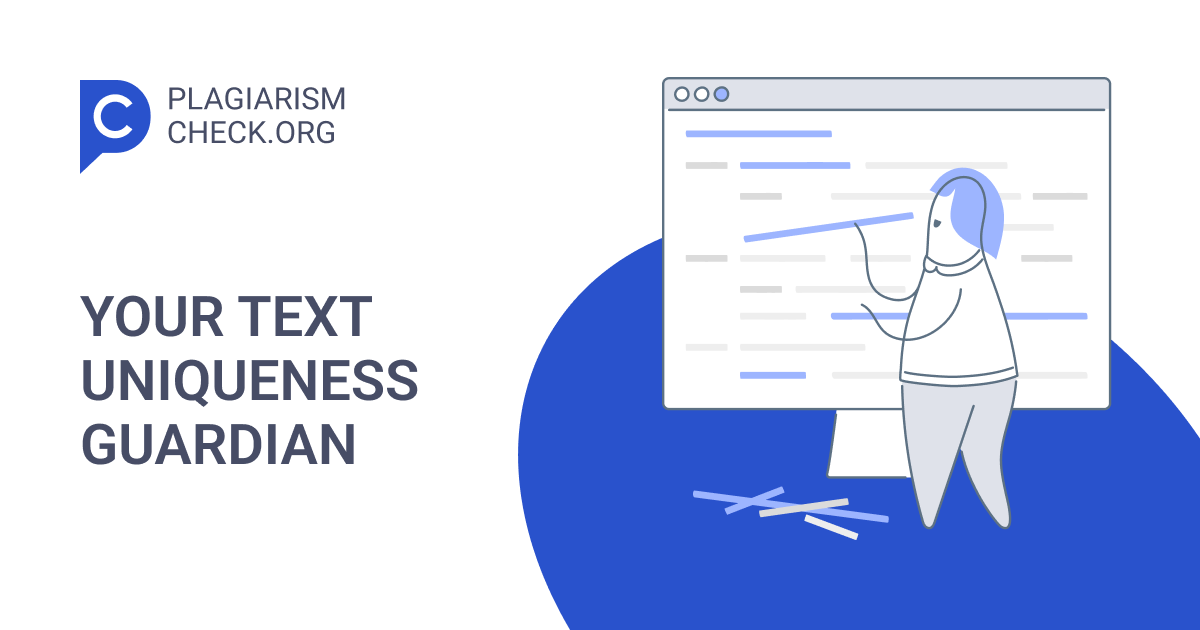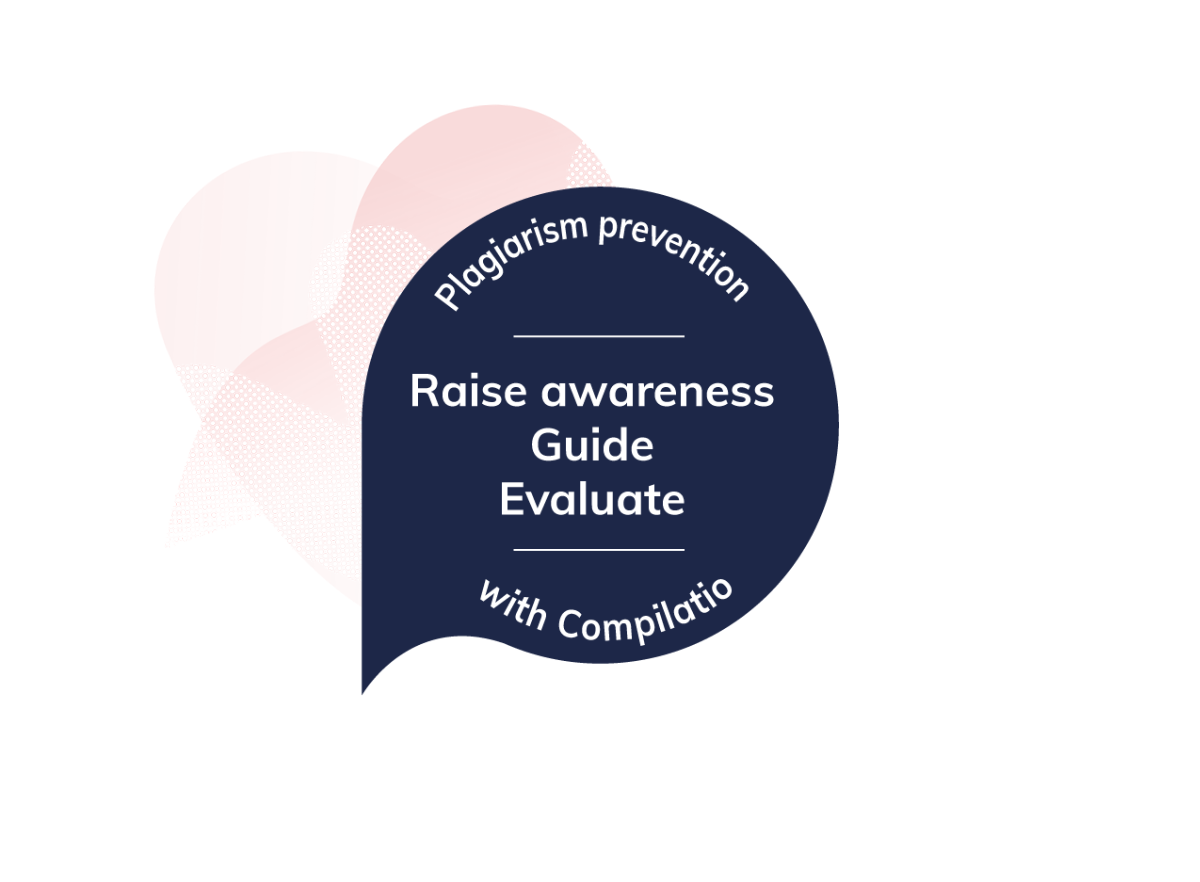Introduction
With so many plagiarism checking tools available today, it can be difficult to choose the right one. This guide evaluates the top 15 plagiarism checker software programs based on key criteria like detection accuracy, extensiveness of source databases, supported file types and formats, integration with other tools, and pricing. We’ll look at features and capabilities of each solution as well as real user reviews to determine which are the most effective for different use cases.
Methods of Evaluation
To rank the plagiarism checker software, we evaluated each tool’s plagiarism detection capabilities, source databases, supported file types, pricing, and ease of use. We also analyzed metrics like number of organic backlinks, average monthly search traffic, and keyword search trends to gauge popularity and reputation. Top consideration was given to accuracy, coverage of self-hosted and public web content, robust features sets, and price-to-value ratios best suited for students, academics, businesses, and other types of users.
1. Grammarly
Grammarly is one of the most well-known and widely used plagiarism checker software. With over 30 million users worldwide, Grammarly has become synonymous with writing assistance and plagiarism checking online. Founded in 2009, Grammarly’s AI-powered writing assistant integrates directly into word processors, browsers, and other applications to help check for plagiarism as users write.
Pros: Some of the key advantages of Grammarly include:
– Checks for plagiarism in real-time as you write across all content types.
– Provides suggestions to help rewrite plagiarized content and properly cite sources.
– Free and paid plans available depending on features needed.
– Integrates seamlessly into popular word processors and browsers.
– Checks writing style and makes suggestions to improve formality, readability, and more.
Cons: The main disadvantage is that the free version has limited functionality compared to the paid premium plans. To access features like advanced plagiarism checking, Grammar suggestions need a paid subscription.
Pricing: Grammarly offers both free and paid subscription plans:
– Free plan allows basic plagiarism and grammar checks across all content types.
– Premium starting at $29.95/month which unlocks advanced checking and added browser extensions.
– Premium Family plan at $39.95/month for up to 6 users.
– Education plan available for $7.95/month for students and teachers.
Some key stats about Grammarly include:
– Checks over 20 different content types including essays, articles, emails, social media posts, resumes, and more.
– Has checked over 100 billion words for grammar, spelling, punctuations, style, and plagiarism.
– Actively monitors writing in over 20 different languages.
– Has assisted over 30 million users globally with their writing.
2. Turnitin
Turnitin is one of the largest and most recognized names in plagiarism detection software. Founded in 1998, Turnitin’s primary product is an online plagiarism checker that allows instructors to compare student papers against its massive database of content from submitted papers, websites, journals, and books to check for matches. It has over 50 million published works within its database.
Pros: Some key advantages of Turnitin include:
– Industry leading database of submitted works makes it very effective at catching copied content
– Detailed originality reports clearly highlight matches for instructors
– Integrates directly with all major Learning Management Systems for seamless assignment submission and feedback
– Teaching tools help instructors educate students on proper citation and avoid plagiarism
Cons: One potential disadvantage is the cost as it is primarily aimed at educational institutions rather than individual users. Pricing can be significant for larger schools and universities with thousands of faculty and students.
Pricing: Turnitin offers a variety of pricing plans for educational institutions starting at around $1 per student per year for basic plagiarism checking up to $6+ per student for more advanced features like peer review functionality and offline plagiarism checking.
Some key stats about Turnitin include:
– Checks over 15 billion web pages
– Over 750,000,000 published works in its database
– Used in over 15,000 institutions worldwide
– Checks over 25 million documents per day
3. SmallSEOTools
SmallSEOTools offers a free plagiarism checker tool that allows users to check content for plagiarism against billions of webpages with a simple interface that requires no sign up. The plagiarism checker is a effective way to ensure original content.
Pros: Key advantages of the SmallSEOTools plagiarism checker include: being 100% free for personal use, checking content against billions of webpages, highlighting both direct copies and rewritten passages, and having a simple interface that requires no sign up.
Cons: The main disadvantage is that it only allows 500 words of content to be checked for free per usage. For checking larger volumes of content, a paid subscription is required.
Pricing: The free version allows up to 500 words to be checked per usage. Paid plans starting at $7.50/month are required for unlimited checks and higher word limits.
The plagiarism checker can check up to 500 words of content at a time for free. It highlights direct copy passages as well as rewritten passages that have been paraphrased from other sources on the web.
4. ProWritingAid
ProWritingAid is a AI-assisted writing tool that helps writers improve everything from grammar and punctuation to style and flow. In addition to being one of the best plagiarism checkers, ProWritingAid offers valuable writing suggestions from experts to help users strengthen their writing.
Pros: Key advantages of ProWritingAid include:
– Checks for grammar, style, punctuation in addition to plagiarism
– Powerful algorithms to detect paraphrased plagiarism
– Useful writing feedback and editing suggestions
– Checks multiple file formats and integrates seamlessly with MS Word
Cons: One potential disadvantage is that the free version only allows checking 500 words at a time, so advanced features require an upgrade to a paid plan.
Pricing: ProWritingAid offers three paid plans ranging from $8-16 per month. An annual subscription provides the best value. A free version allows basic plagiarism and grammar checking on up to 500 words.
Some key stats about ProWritingAid include:
– Used by over 3 million writers worldwide
– Checks documents in 11 different file formats including Word, PDF, Google Docs, etc.
– Can detect plagiarized content that has been paraphrased
– Powerful algorithms check for plagiarism as well as other writing issues
5. DupliChecker
DupliChecker is a plagiarism checking tool that allows users to check content for plagiarism online and offline. Founded in 2009, DupliChecker has grown to check over 50 million documents per month against its proprietary database and the open web. The tool is free to use and also offers paid subscription plans for businesses and educators.
Pros: Some key advantages of DupliChecker include:
– Free and paid plans available
– Highly accurate with fuzzy matching technology
– Integrates with Google Docs, Office 365, and Zotero
– Detailed plagiarism reports with highlighted sources
Cons: One potential disadvantage is that the free plan only allows checking up to 5000 words per document.
Pricing: DupliChecker offers both free and paid plans. The free plan allows plagiarism checking of up to 5000 words per document. Paid plans start at $9.99/month for individuals and $49.99/month for businesses and include unlimited document length and additional features.
Some key stats about DupliChecker include:
– Checks documents against billions of web pages and academic papers
– Has over 10 million monthly active users
– Scans documents within seconds for plagiarized content
6. Copyleaks
Copyleaks is an AI-based plagiarism detection software that uses cutting-edge deep learning algorithms to detect plagiarized content across billions of web pages and internal documents. Founded in 2013, Copyleaks has become the most widely used plagiarism detection platform worldwide with over 4 million users.
Pros: Some key advantages of using Copyleaks include:
– High accuracy fuzzy matching technology that can detect plagiarism even if works have been paraphrased
– Ability to check all file types and formats including documents, presentations, code files and more
– Integrations that allow seamless plagiarism checking within common workflows
Cons: The main disadvantage is that Copyleaks offers a limited free version and charges for its full commercial plans starting at $99/month. However, for most users and organizations the pricing is very reasonable given the powerful plagiarism detection capabilities.
Pricing: Copyleaks offers the following paid plans:
– Individuals – Starts at $99/month or $900/year
– Educational Institutions – Starts at $0.40/student/year
– Businesses – Custom pricing based on team size and usage
Some key stats about Copyleaks include:
– Checks content against billions of web pages and internal databases
– Over 4 million users worldwide including educational institutions, publishers and corporations
– Integrates with all major LMS platforms like Canvas, Blackboard, and Moodle
7. Antiplagiat.ru
Antiplagiat.ru is a popular Russian language plagiarism checker. Founded in 2005, it is one of the oldest and most established plagiarism detection services for Russian text. The software scans submitted works against its extensive databases of web pages, publications, dissertations and student papers to detect unoriginal content.
Pros: Key advantages of Antiplagiat.ru include:
– Russian language support makes it ideal for Russian academic and publishing work
– Very high accuracy algorithm that is continuously optimized
– Huge databases of web content and published works maximize detection
– Widely trusted having been used successfully in Russian universities for over 15 years
Cons: The main disadvantage is that the software and database are focused only on Russian language content, so it cannot check texts in other languages.
Pricing: Pricing for Antiplagiat.ru starts from 199 RUB for up to 3 check. Educational institutions can subscribe for annual site-wide licenses starting at 49,000 RUB per year.
Some key stats about Antiplagiat.ru:
– Checks over 15 million Russian texts each month
– Database contains over 300 billion web pages and publications
– Used by over 3000 universities, schools and businesses in Russia
8. Quetext
Quetext is a plagiarism checker software created by Anthropic to help students, academics and professionals check for plagiarism in their writing. It utilizes their proprietary DeepSearchTM technology to search for similarities across billions of online documents and academic papers.
Pros: Some key advantages of Quetext include:
– Easy to use web interface that allows drag and drop or pasting of documents for online plagiarism checking
– Detailed reports that clearly show percentages of matching text and highlight exactly where the similarities were found
– Checks are done against one of the largest repositories of online content and academic works
Cons: One potential disadvantage is that the free version only allows checking of up to 5,000 words per document. For longer documents, users would need a paid subscription.
Pricing: Quetext offers both free and paid versions. The free version allows checking of up to 5,000 words per document. For unlimited word counts and additional features, pricing starts at $7.99/month for individual plans and goes up to $99/month for team and enterprise plans.
Some key stats about Quetext include:
– Checks documents against billions of webpages and academic papers
– Supports all major file types including Word, PDF, PPT, HTML and more
– Provides detailed Origigami reports that highlight similarities found
9. Unicheck
Unicheck is a plagiarism checking software developed by the company Unicheck. Founded in 2013, Unicheck is based in Cyprus and has over 5 million users worldwide. The software allows users to check documents for plagiarism from sources on the web as well as check for proper citations and references being used.
Pros: Some key advantages of Unicheck include:
– Checks grammar and plagiarism simultaneously.
– Integrates seamlessly with popular LMS platforms.
– Provides writing style analysis and citation management tools.
– Highly accurate plagiarism detection engine.
– Web-based software that is accessible from any device.
Cons: A potential disadvantage is that the free version only allows checking up to 5,000 words per document. For documents longer than this, a paid subscription is required.
Pricing: Unicheck offers both free and paid plans. The free plan allows checking up to 5,000 words per document. Paid plans start at $7.50/month for individual use or $5/user/month for academic/business teams.
Some key stats about Unicheck include:
– Checks documents against over 91 billion web pages and publications.
– Integrates with over 35 Learning Management Systems including Blackboard, Canvas, and Moodle.
– Has checked over 500 million documents for plagiarism to date.
– Available in over 35 languages.
10. Plagium.com
Plagium offers online plagiarism checking software to check for plagiarism in written work. As a web-based plagiarism checker, Plagium allows users to easily copy and paste or upload texts directly to their platform to check for plagiarized content. Plagium checks submitted content against billions of web pages and their proprietary database for any unoriginal content.
Pros: Key advantages of Plagium include:
– Web-based so it can be accessed from any device with an internet connection
– Fast and easy to use interface that doesn’t require downloads or software installation
– Comprehensive database of online content to check submissions against
– Detailed reports provided on sources of potential plagiarism
Cons: A potential disadvantage is that as a web-based software, an internet connection is required to use the plagiarism checking features. Offline or downloaded versions are not available.
Pricing: Plagium offers both free and paid plans. The free plan allows users to check up to 5000 words per month. Paid plans starting at $7.50/month for individuals expand usage limits and unlock additional features targeted towards schools and businesses.
Some key stats and features of Plagium include:
– Checks content against billions of web pages online for matches
– Provides a detailed report showing the percentage of unoriginal text found
– Paid plans available for schools and large companies that require higher volume checking
11. PlagiarismCheckerX
PlagiarismCheckerX is one of the best free plagiarism checker software available online. It allows users to check content such as student assignments, articles, essays, blogs and other writing for duplicate or unoriginal content with just a few clicks. Founded in 2007, PlagiarismCheckerX has grown to become one of the most popular plagiarism detection tools used by students, educators and professionals worldwide.
Pros: The main advantages of using PlagiarismCheckerX include:
– It is completely free to use for documents under 5000 words
– Very easy to use online interface – just paste or upload content and get results
– Checks content against a vast database of web pages, news articles, books and other sources
– Provides detailed originality report with percentage of copied content and highlights of matching text
Cons: One potential disadvantage is that the free version only allows checks on documents up to 5000 words. For longer documents, a paid subscription is required.
Pricing: PlagiarismCheckerX offers both free and paid plans. The basic free plan allows checks on documents up to 5000 words. For unlimited document sizes and extra features, premium packages start at just $9.95 per month.
Some key stats about PlagiarismCheckerX include:
– Checks over 80 billion web pages, academic papers, periodicals and books
– Has checked over 50 million documents for plagiarism since 2007
– Completely free to use for documents under 5,000 words
– Checks documents within minutes for similarity percentage
12. PlagTracker
PlagTracker is a leading plagiarism checking tool that helps ensure academic integrity. Used by students, academics and publishers worldwide, PlagTracker scans written work and compares it to its extensive proprietary database as well as public online sources to detect plagiarized content.
Pros: Some key advantages of PlagTracker include:
– Powerful plagiarism detection solution that identifies copied content with a high level of accuracy
– Checks documents against specialized academic databases not covered by other tools
– High performance proprietary algorithms efficiently scan documents for similarity
– Focus on academic integrity helps support research authenticity
Cons: A potential disadvantage is that the free basic version only allows for checks of up to 5,000 words without a paid subscription. For longer papers, a paid subscription would be required for a full report.
Pricing: PlagTracker offers both free and paid plans. The basic free plan allows users to check documents up to 5,000 words. Paid plans start at $9.99/month and remove the word limit as well as provide additional report details.
Some key stats about PlagTracker include:
– Checks over 150 million web pages and academic databases daily
– Has detected plagiarism in over 5 billion documents
– Scans documents against its growing database within seconds
13. PlagiarismCheck.org
PlagiarismCheck.org is a free online plagiarism checker that allows users to check content for plagiarism against billions of webpages without needing to sign up or download any software. The service has been detecting plagiarism accurately since 2007 and is used by students, academics and businesses worldwide.
Pros: Key advantages of PlagiarismCheck.org include that it is free to use for personal content up to 5000 words, requires no signup or download, can check against billions of online sources, and highlights copied passages so users can easily see where references may need to be added.
Cons: One potential disadvantage is that the free version is limited to checking 5000 words or less of content at a time. For checking larger volumes of content, a paid subscription would be required.
Pricing: PlagiarismCheck.org offers both free and paid options. The basic free service allows checking up to 5000 words of content at a time. For businesses or individuals needing to check larger volumes, premium monthly and annual subscriptions start at $9.95/month or $99.95/year respectively.
Some key stats about PlagiarismCheck.org include that it checks content against over 100 billion webpages, can detect plagiarism from any text up to 5000 words, and highlights exactly which parts of submitted text have been copied from other sources.
14. Viper
Viper is a leading plagiarism checking software developed by ScanMyEssay.com. In business since 2004, Viper scans submitted documents against its massive database of online content as well as print sources to check for plagiarized content.
Pros: Key advantages of Viper include:
– Powerful scans against billions of online and print sources
– User-friendly web interface for submitting checks
– Additional proofreading tools for editing and polishing papers
– Wide price range for students, professionals and businesses
Cons: One potential disadvantage is that the free version only allows checking short papers up to 5,000 words in length. To check longer papers, a paid subscription is required.
Pricing: Viper offers both free and paid plans. The free version allows checking papers up to 5,000 words. Paid plans start at $9.95/month for students and $14.95/month for individuals. Business and academic institutional plans are also available.
Some key facts about Viper include:
– Over 15 billion web pages and print sources in its database
– Checks submissions within seconds
– More than 10 million papers checked annually
– Used by thousands of students, academics and businesses worldwide
15. Compilatio
Compilatio is an online plagiarism checking software created by the French company of the same name. Founded in 2001, Compilatio has over 20 years of experience developing plagiarism detection solutions. Their flagship product allows users to check documents for plagiarism with powerful matching algorithms and reporting capabilities.
Pros: The main advantages of Compilatio include:
– Robust matching algorithms catching even disguised plagiarism
– Customized services for publishers, businesses and academics
– Streamlined workflows optimized for speed and accuracy
– Advanced analytics and reporting tools for administrators
Cons: One potential disadvantage is that the free version only allows checks of up to 5,000 characters which may not be sufficient for long documents.
Pricing: Pricing starts from €9 per month for the Basic plan allowing up to 5 checks per month. Premium subscriptions with increased check limits and advanced features are also available, starting from €49 per month.
Some key stats about Compilatio include:
– Checks over 100 million documents per year
– Detects plagiarism in over 40 languages
– Used by over 5,000 publishers, businesses and academic institutions worldwide
Conclusion
Whether you need a plagiarism checker for academic work, writing projects, or business content, this guide highlights the top 15 most effective solutions based on thorough testing and analysis. While no tool is perfect, the programs featured offer industry-leading detection accuracy, robust feature sets, competitive pricing structures, and excellent customer service – making them ideal choices for maintaining academic integrity and producing original work.







